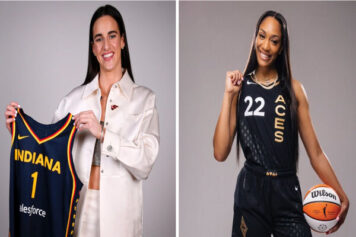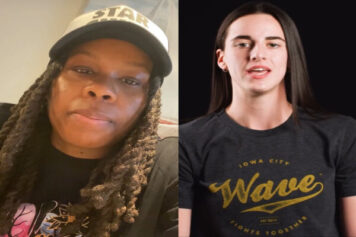In the evolving landscape of sports entertainment, Urban Edge Network, LLC (UEN), spearheaded by Hardy Pelt, founding member and chief revenue officer, alongside Todd Brown, has achieved remarkable progress since introducing the historically Black college sports platform HBCU+ streaming network in 2021 and making an impact in the broadcast network landscape.
According to Brown, “99 percent of all money made in media goes to white people and it goes away from Black people…we own less than one percent of the revenue that comes from media and that’s a crime because we are leading the engagement, entertainment and the consumption of media and we don’t own any of it.
“When Bob Johnson sold BET to Sumner Redstone,” Brown said in a March 7 interview, “ we were one percent of the advertising budget which is now close to $340 Billion every year and right now today we are getting less than one percent of advertising budget as Black owned media companies.
So we are the show and they are the business and we launched this company to combat that”
Since then, the platform has exploded, reaching 300 million devices globally and making it a trailblazing weapon in the historically neglected space of HBCU sports.
“HBCUs represent 101 Black Communities because there is no HBCU that is not a Black Community,” Brown, co-Founder/CEO of Urban Edge Network, tells The Shadow League. “When you see the economics of 1.6 trillion dollars in the marketing space. HBCU+ is a vehicle to reach an untapped market of people ages 12 to 80 and heavily female.”
UEN and HBCU+ Seek Untapped Market
The fight for visibility, recognition and corporate support is a longstanding battle for HBCU athletic programs. What Deion Sanders was able to accomplish during his time at Jackson State by getting more visibility for HBCU athletes, corporate deals and ESPN exposure, led to an increased number of HBCU football players getting drafted.
It also led to a heightened sense of corporate value for all HBCU schools.
HBCU+ and UEN formed so that Black college talent would have its own self-sustaining platform, where they can showcase the abundance of talent and character throughout the HBCU landscape and market these talents in an ever-evolving college athletic landscape.
The genesis of this groundbreaking initiative began when Pelt presented the challenges faced by HBCUs to the Trump administration, highlighting their struggles to monetize their sports properties.
Hardy Pelt and Todd Brown Hook Up To Help Grow HBCU Athletic Platform
Always open to seeking solutions, Pelt joined forces with industry veteran Todd Brown, who has built a prestigious career in leadership roles at Black content organizations such as TheGrio, Ebony, Jet, as well as Comcast, and Viacom. He is currently Chairman-elect of American Diabetes Association and a 15-year serving active member of the Executive Leadership Council.
They formed like Voltron with a mission aimed at combating the unequal treatment of Black-owned media companies and became the driving force behind HBCU+.
Their initial efforts met with some resistance, but Brown and Pelt have not been deterred in their efforts to educate the marketplace with a platform design that provides HBCUs with exposure to revenue streams traditionally dominated by predominantly white-owned networks. Their media mission is essential to the survival and financial stability of HBCUs as a whole.
The strategic partnership with Amagi, the global leader in cloud-based SaaS technology for broadcast and connected TV, has further propelled HBCU+ and UEN, enabling access to cutting-edge technology, programmatic strategies, and influencer elements. This integration aims to maximize revenues for HBCU partners, offering a lifeline to athletic departments grappling with financial challenges.
Costs Of Athletic Programs Outpacing HBCU Budgets
Increasingly the expenses of operating football and, to somewhat of a lesser extent, basketball programs, have outpaced the growth in HBCU athletic program budgets.
Since PWI’s started cherry-picking all of the best Black talent around the mid-70s, many HBCU athletic programs have dropped expensive sports such as football. Over the past decade, some scaled-down versions of football programs have returned.
Smaller schools have made difficult but necessary financial decisions to survive as educational institutions by downsizing their athletic programs because of meager operating budgets, consequently making it an unattractive destination for student-athletes.
There are many leading Black educators who agree that sports sadly must be sacrificed for education at these HBCUs.
Dr. Al-Tony Gilmore, an HBCU professor and Distinguished Historian Emeritus of the National Education Association, has researched, lectured, and published widely on the intersection of sports and society.
In a February commentary published in The Journal of Black in Higher Education, Dr. Gilmore says this about the state of athletics at the nation’s historically Black colleges and universities.
“The decline in the athletic programs at these schools may now be irreversible, and only an improbable massive infusion of money could restore the sports programs they have lost since integration. As it should be, these schools center their financial priorities and energies on infrastructure, academic programs, faculty, and on raising money and increasing their small endowments.”
As a result, HBCU school athletics directors and conference commissioners are challenged to find and secure more sources and means of revenue for athletics.
While these schools try to figure it out with social media promotions and “money games” that pit extremely outmatched HBCU programs against billion-dollar Power Five schools with NIL athletes throughout the roster for a high six-figure check, HBCU+ and UEN do its part to promote the talent and fight for its validity as a corporate brand.
Progress Being Made By UEN and HBCU+ Streaming Service
Brown and Pelt have already broken down some doors, including a groundbreaking broadcasting partnership with the NBA G League Texas Legends and a broadcast partnership with the inaugural Florida Beach Bowl.
Additionally, the collaboration with the Impact Network has expanded UEN’s broadcasting capability to 70 percent of the country, solidifying its position as the premier Black-owned network for HBCU sports. That vast audience tuning in for more than 100 live events aided UEN’s growth to become the number one Black owned network for HBCU sports.
HBCU+ stands as an ad-supported Black college sports network, offering 24/7 access to live and on-demand HBCU games, sports events, original shows, films, podcasts, and more on platforms like Roku, Amazon Fire TV, Apple TV, Samsung TV, iOS, and Android.
Furthermore, the partnership established with Amagi has accelerated the growth of these platforms, granting unfettered access to technological advancements, programmatic strategies, and influencer elements. This integration will maximize revenues for their HBCU partners and help uplift the athletic departments, allowing them to overcome financial struggles.
Being Black has always been about being creative in this world and figuring out how to circumvent systemic and financial obstacles. With millions of HBCU alumni all across the country and abroad, these streaming networks have a built-in audience of some of the most successful people in the world. It’s all about connecting the dots and providing them with a home to stay in touch with the athletic exploits of their schools.



